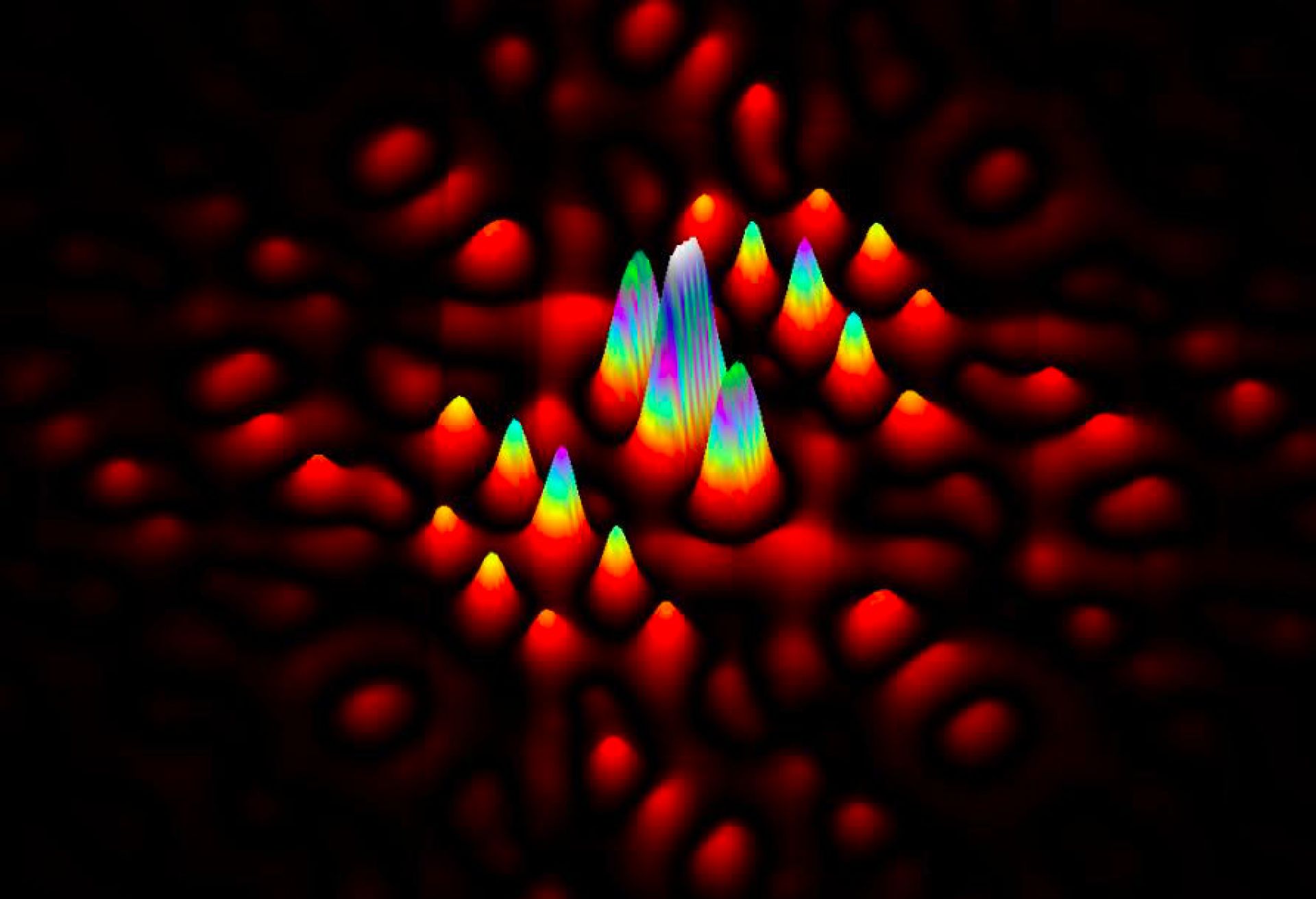
Sciences & Technology
From sand to superposition: A key step towards a powerful silicon quantum computer

To celebrate the Year of Quantum, a physicist explains why this ‘spooky’ science is destined to become even more important in every area of our lives
Published 10 July 2025
You may not have realised it yet, but the United Nations has declared 2025 the International Year of Quantum Science and Technology.
However, it really is something to celebrate, not least because the electronic device that you are using to read this article depends on some of the advanced applications of quantum phenomena.

This year was chosen because 2025 marks the centenary of the publication of the first articles on quantum mechanics, also known as quantum physics.
These research papers identified the scientific principles that describe the motion and interaction of subatomic particles like photons and electrons – the particles that make up everything we currently understand about matter.
A century later, technologies based on quantum mechanics are everywhere.
Devices like mobile phones depend on advanced applications of the theory of quantum electrodynamics, which describes the interactions between matter and electromagnetic radiation at the level of individual atoms.

Sciences & Technology
From sand to superposition: A key step towards a powerful silicon quantum computer
To the end-user, electronic devices represent a pinnacle of modern technology.
Your mobile phone is a machine that seems to be able to do almost anything and everything, with apparently infallible certainty.
It employs technology that you need no physical access to, other than a button to turn it on and off, a touchscreen, speaker and microphone to interact with it and a socket to charge the battery.
This illusion of simplicity evaporates when it comes to understanding how these devices work at the atomic scale.
The word ‘uncertainty’ has a precise technical meaning in quantum mechanics that presents both a challenge and an opportunity in the development of new technologies.

The familiar certainties of our everyday experience – like the expected actions from a touchscreen – emerge from the collective behaviours of quantum mechanical complexity and uncertainty.
At the heart of quantum mechanics is the uncertainty principle.
There are some fundamental quantities, like the position and momentum of a particle, which we cannot simultaneously measure precisely.
If we know the precise location of an electron, for example, we can know nothing about its momentum. Conversely, if we know precisely its momentum, we cannot make any definite statement about where it is.
The uncertainty principle puts limits on the precision of simultaneous measurements of some physical quantities.
No experimental strategies, no matter how devious or ingenious, can get around this fundamental rule of nature.

Sciences & Technology
Lightning in a diamond to power the quantum revolution
Certainty is replaced in quantum mechanics by probability.
We can only talk about the probabilities that measurements of properties like position and momentum will be obtained at any given time.
Everything that we can know about a quantum mechanical system is contained within a mathematical object called a wavefunction, which is used to calculate these probabilities, using some well-defined rules.
We are now very good at obtaining these wavefunctions and using the rules of quantum mechanics to predict the outcomes of physical measurements.
Quantum electrodynamics, for example, has been tested against experiments to an accuracy of better than one part in 1,000,000,000,000.
It's the most accurate physical theory that we have yet devised.

But there are two distinct schools of thought amongst physicists and philosophers about the role of quantum mechanics as a scientific theory.
There are those who view quantum mechanics as a purely mathematical process for predicting and interpreting physical measurements.
Then there are others who insist that it should reveal the very nature of physical reality.
The second group argue that the continuing lack of consensus about the interpretation of quantum mechanics shows us it's an incomplete physical theory – despite its unfailing predictive power.
One of the most surprising consequences of its mathematical structure suggests that quantum systems can be used to construct new types of information technology.
The theoretical power of these so-called quantum computers far exceeds the abilities of today’s most powerful supercomputers.

Sciences & Technology
Machine learning to scale up the quantum computer
When this idea was first circulated forty years ago, it seemed fanciful that the formidable technical challenges of manipulating and measuring quantum systems could be overcome in the design of a working quantum computer.
Today, the School of Physics at the University of Melbourne supervises graduate students designing computational algorithms that are executed on the first generation of functional quantum computers in a thriving collaboration with IBM.
Our researchers are also tackling experimental research on the design of the next generation of quantum computing hardware and devices that utilise quantum mechanics to sense tiny electromagnetic fields.
Like many projects in physics, challenges eventually give way to progress.
Sometimes this progress takes decades and involves large, collaborative, interdisciplinary and international teams of researchers.
The School of Physics at Melbourne once housed CSIRAC, Australia’s first digital computer.
Seventy years later, we remain at the forefront of computational physics, leading research on the potential applications of quantum computers.

This may make possible the development of new pharmaceuticals and the discovery of high-temperature superconducting materials using first-principles computational implementations of quantum mechanics.
The search for dark matter promises to expand our understanding of the subatomic particles in the universe.
It may even lead, perhaps, to the formulation of the elusive ‘theory of everything’ that fully reconciles the theories of quantum mechanics and general relativity.
That we have made such progress in the first century of quantum mechanics is surely worth celebrating.
Since 1968, the School of Physics at the University of Melbourne has hosted the July Lectures on Physics. This year, the series will celebrate the International Year of Quantum Science and Technology with lectures on quantum physics and technology on 11 July, 18 July, 26 July and 1 August.